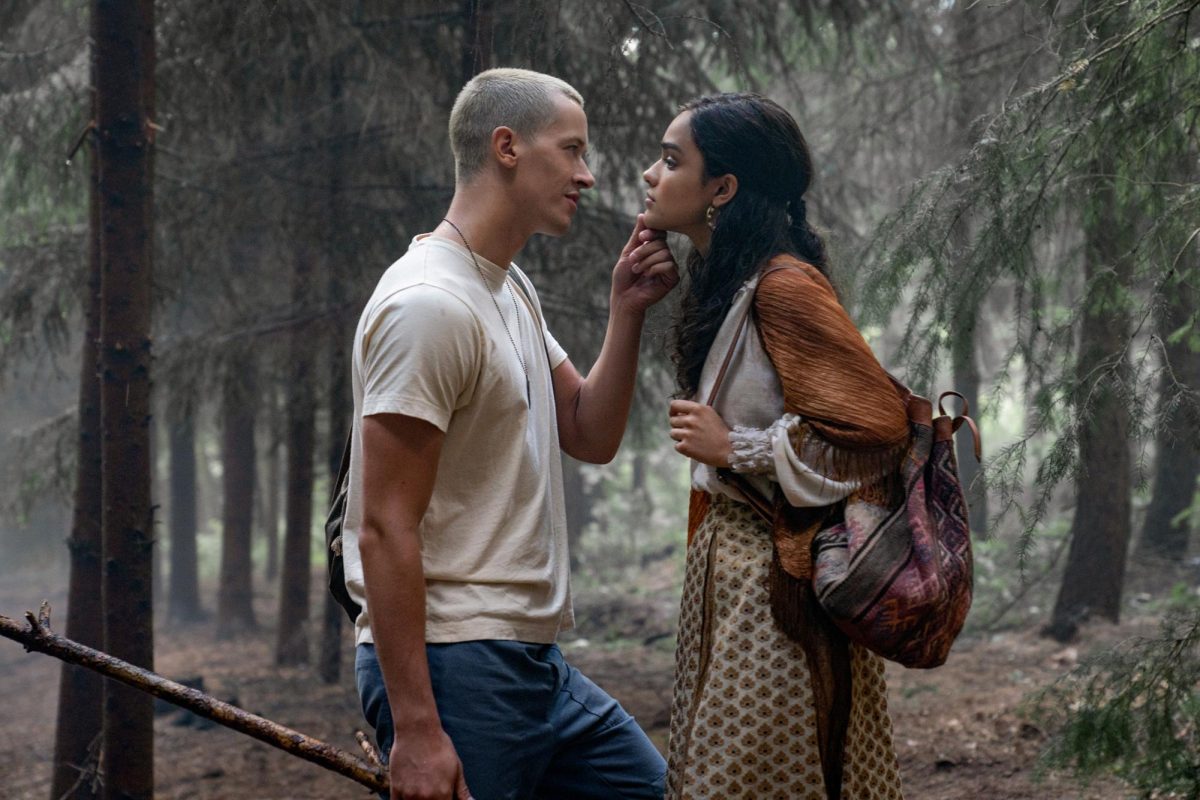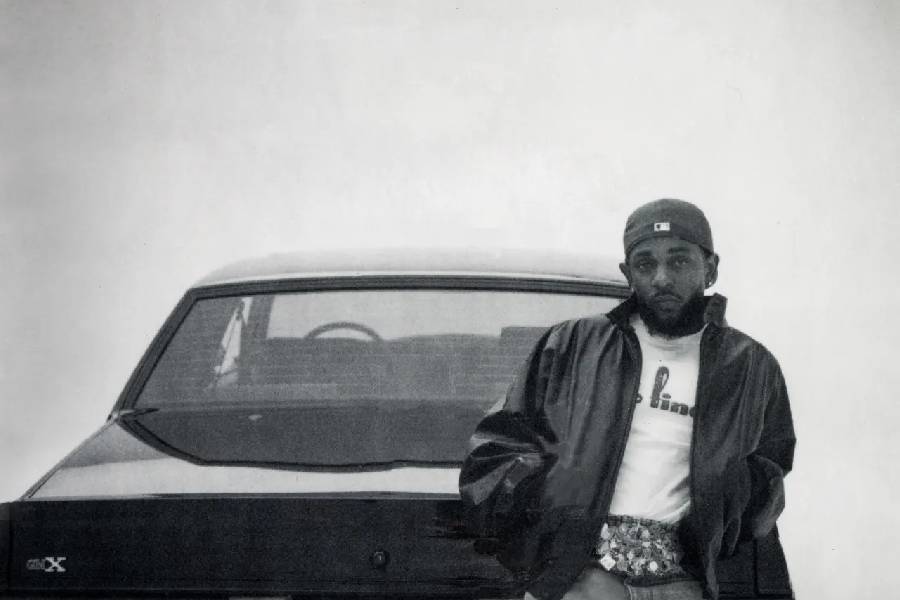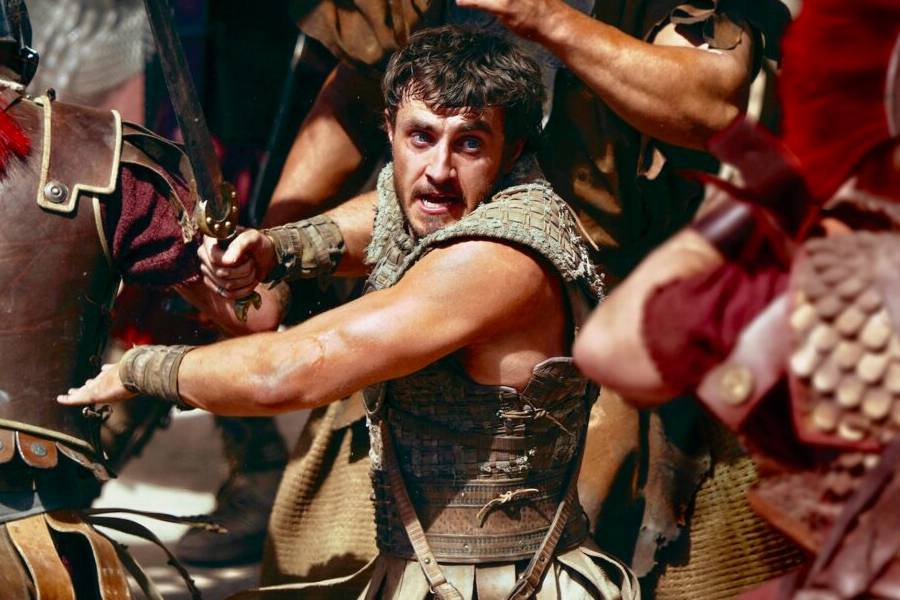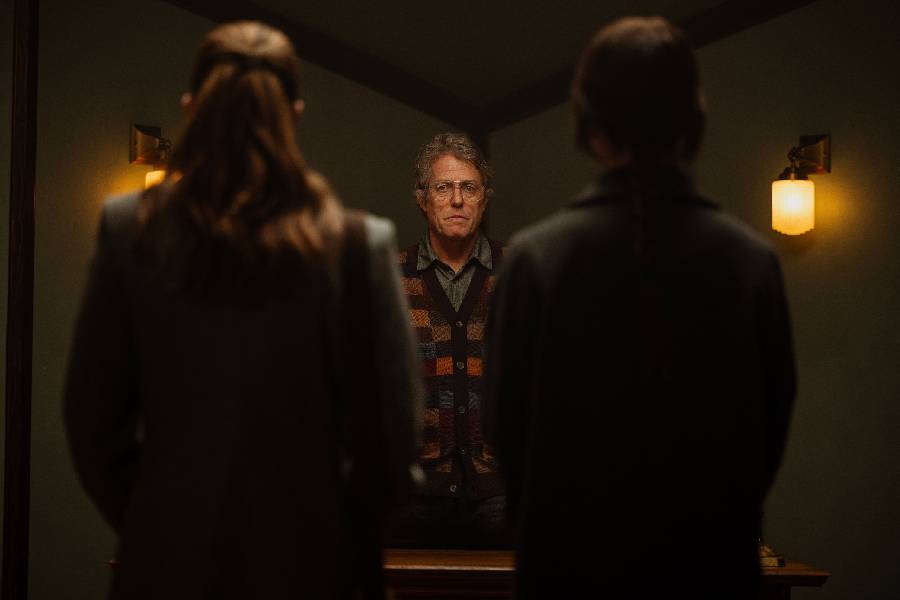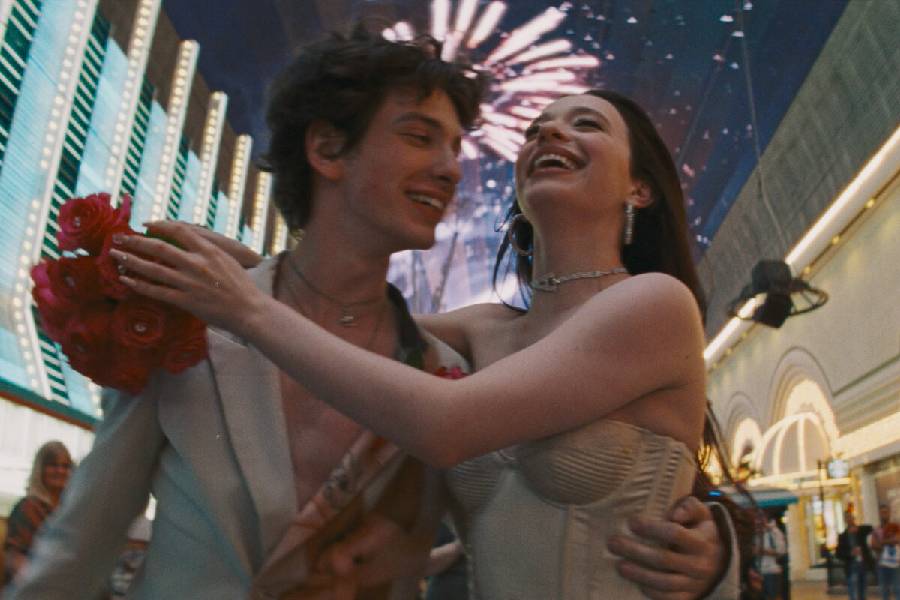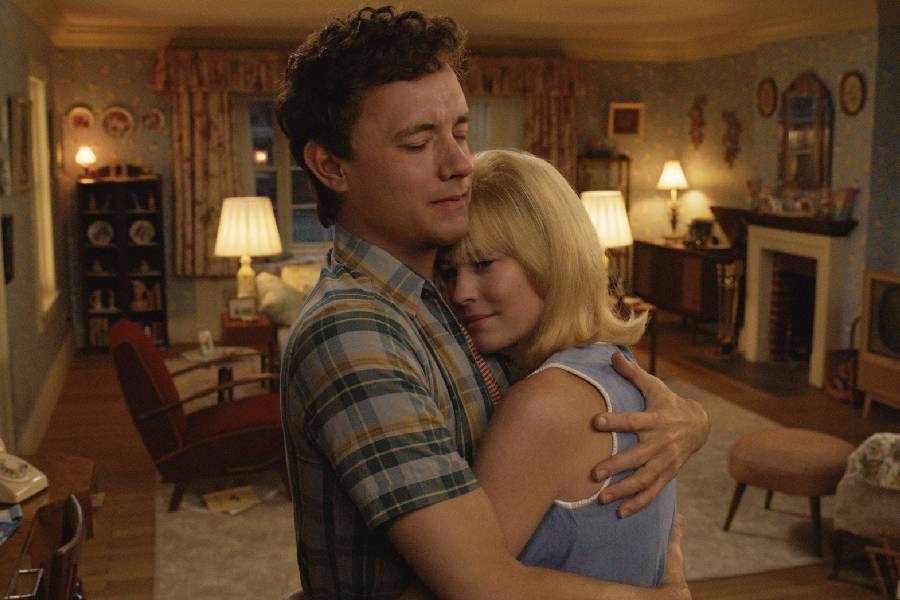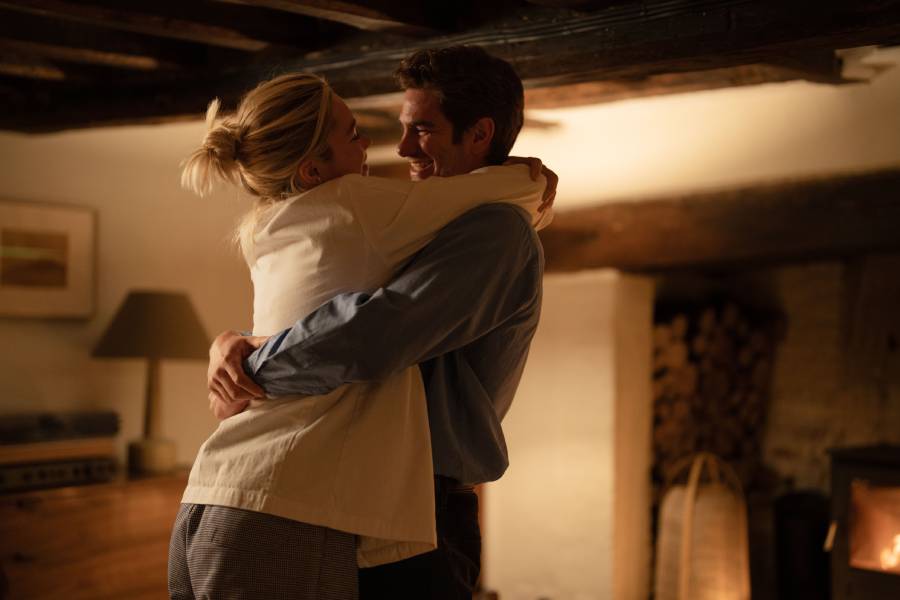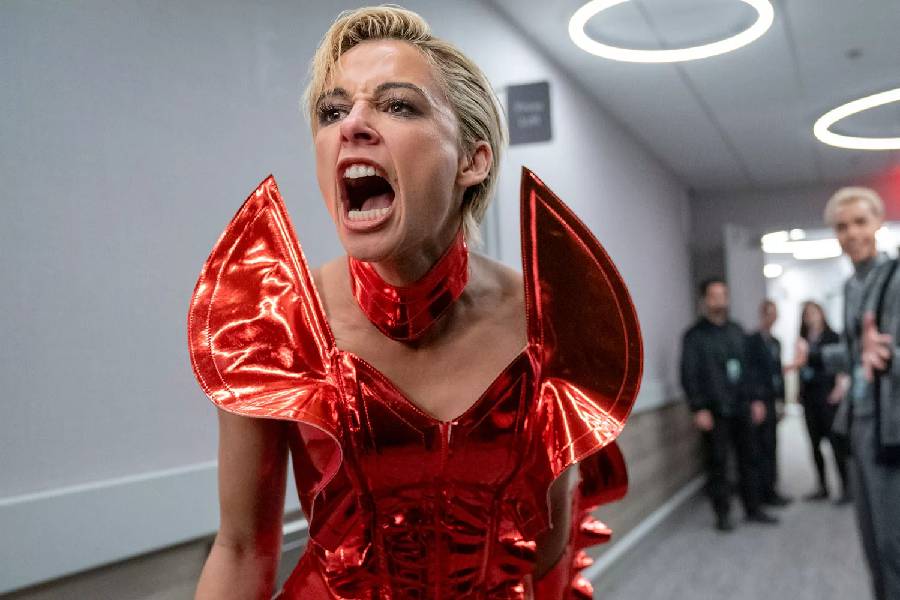On Nov. 17, movie theaters nationwide returned to the world of Panem for the first time since “The Mockingjay Part II” came out in 2015. “The Hunger Games: The Ballad of Songbirds and Snakes” is a film that effortlessly dives back into Panem in a visually stunning and intrinsically intelligent manner.
Taking place 64 years prior to when the first Hunger Games film is set, “The Ballad of Songbirds and Snakes” is based on the novel of the same name by Suzanne Collins and tells the story of the 10th annual Hunger Games, featuring a young Coriolanus Snow pre-presidency and the female tribute from District 12, Lucy Gray Baird.
Lucy Gray Baird (Rachel Zegler) is portrayed in the film as a singer and performer who never felt like she belonged to District 12 and was set up by other people in the district to be reaped. When Lucy Gray is first introduced, she sings a song at the reaping to acknowledge that she was set up and to defy the way in which reaping days are supposed to happen. Her first performance, although slightly out of place within the tone of the reaping day, makes sense for this character, a performer at heart forced into fighting.
Perhaps the most engaging part of the film, however, is the story of a young Coriolanus (Tom Blyth), a tyrannical leader whose early rise into corruption centralizes this film. Blyth’s ability to convey several emotions at once without a word of dialogue introduces us to an almost unrecognizable character compared with the President Snow we are accustomed to from the previous movies.
Difference in age aside, Blyth’s version of Coriolanus Snow has yet to make up his mind as to what kind of person he wants to be. We are given an inside look into how hunger personally affected Snow’s early life and struggles he faced with earning money for his family. The added context of the future president of Panem’s relationship with hunger reveals his later understanding of it as a weapon.
In a similar fashion to the previous Hunger Games films, this film is based on logic and manipulation, relying on an understanding of the morality of human beings. With costumes that have a vintage feeling to them, and heightened brutality through the “tribute zoo,” this movie does an excellent job of bringing viewers back into the past and making this story feel like the beginning of something greater.
One of the most striking uses of music within this movie was the reintroduction of “The Hanging Tree” and divulgence that Lucy Gray wrote the song that 64 years later would become a song of rebellion. The small variations of melody and tone made sense with the context for the way in which Katniss would have learned the song. It was also a great way to play to the strong suits of Zegler and Jennifer Lawrence’s different performance abilities.
The relationship between Lucy Gray Baird and Coriolanus Snow gives context to the way in which Coriolanus interacts with Katniss Everdeen in the later movies, given how similar the two are in how they interact with the other tributes and their similar will to fight. Small references to Katniss are riddled throughout the film, from similar mannerisms and the infamous bow to a reference of her name. The use of familiar musical themes in the previous films in the background creates a stirring of anxiety and tension within the audience who knows that this is only the beginning of a much bigger story.
Additionally, knowing how hard Coriolanus fought to save Lucy Gray in her games and how infatuated he became with her, it is easier to understand how in the later games he became bitter and almost anti-romantic in nature. And why he famously says to Seneca Crane in “The Hunger Games” that he does not like an underdog; Lucy Gray was that underdog.
There is a level of perceived innocence within Blyth’s performance of Coriolanus Snow that makes it almost impossible to connect the character with the more familiar older version of himself. Throughout the movie, Coriolanus Snow is constantly presented with choices, led by mentors and people who want him to choose one side. So when it is made abundantly clear toward the end of the movie that the choice of kindness and compassion was never one he was going to make, there is an eerie kind of disappointment.
Toward the end of the film, Lucy Gray realizes Coriolanus Snow is never going to make the choice to be good in his world where interest outweighs innocence. True to the way in which Suzanne Collins ends the novel, “The Ballad of Songbirds and Snakes” ends with an open-ended question about Lucy Gray’s fate, leaving many fans wondering and trying to grasp where the infamous songbird went, if she really did survive the arena that no one ever leaves.


